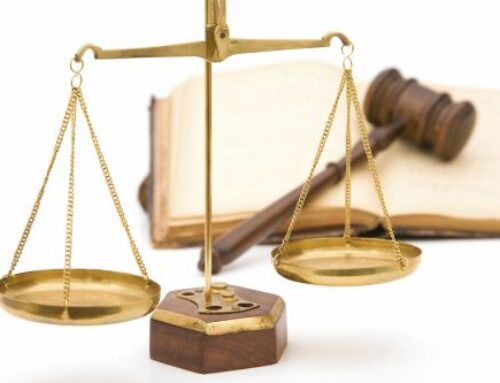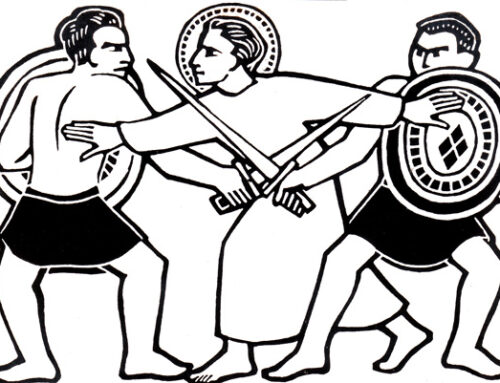But It’s a Sin
November 24, 2016
Categories: Justice
This blog post is Part 6 in a 12-part blog series on Christianity and justice. (If you missed the first post, you can find it here.) Specifically, we have been talking about barriers that some Christians have around engaging in justice efforts. One of the biggest struggles that some Christians have around justice issues occurs when they experience a conflict between the justice issue and what they believe to be right according to God or the Bible.
I have experienced this conflict myself in the areas of sexual orientation and gender issues. For example, when I was growing up, I was taught that being gay was a sin, and that sex should only occur in the context of heterosexual marriage. For example, Paul writes the following in his first letter to the Corinthians: Do not be deceived: Neither the sexually immoral nor idolaters nor adulterers nor men who have sex with men nor thieves nor the greedy nor drunkards nor slanderers nor swindlers will inherit the kingdom of God (1 Corinthians 6:9-10). I thought the Bible was clear on this issue, so it was tough for me to support a justice issue such as marriage equality.
I remember talking with a friend who experienced this same conflict around issues of gender identity. My friend felt strongly that the binary gender categories (i.e., man and woman) was something that was created by God and should not be altered. This conviction was based in verses such as Genesis 1:27, which says: So God created mankind in his own image, in the image of God he created them; male and female he created them. Because he thought the Bible was clear on this issue, it was tough for him to support a justice issue like allowing transgender individuals to use the bathroom that fit their gender identity.
Some Christians may think justice is important when making moral decisions, but they view other factors, such as obedience to authority (such as God or the Bible) as more important. Jonathan Haidt studied how individuals across cultures and religions make decisions about right and wrong. He said that people use five moral foundations in order to make these types of decisions. Here are the five moral foundations:
- Harm. Moral decisions are made based on whether a person or other living thing is harmed. If someone gets harmed, then the behavior or action is wrong.
- Fairness. Moral decisions are made based on whether the outcome is fair or just. If the outcome is unfair, then the behavior or action is wrong.
- Authority. Moral decisions are made based on a higher authority, such as God, a sacred text, or a political leader. If the authority deems a behavior or action to be wrong, then it is wrong.
- Loyalty. Moral decisions are made based on the collective decision-making of the group. If the group deems a behavior or action to be wrong, then it is wrong.
- Purity. Moral decisions are made based on purity, cleanliness, and disgust. If something sacred is defiled, then the behavior or action is wrong.
Think about how you make moral decisions about right and wrong. Which of the five moral foundations do you think is most important? Which of the five moral foundations do you think is least important? Moral foundation #2 is the one that is most closely associated with justice. For some Christians, fairness and justice is a big part of their moral code. For other Christians, fairness and justice may be a factor, but other foundations such as authority, loyalty, and purity, may be more important.
Discussion: How much do you focus on justice when making moral decisions about right and wrong? What do you do when a justice cause seems to conflict with something else that is important to you, such as what the Bible says about a particular topic?
Related Thoughts
No Comments
Leave A Comment

Subscribe To My Newsletter
Join my mailing list to receive the latest blog posts.
Receive my e-book “The Mental Health Toolkit” for free when you subscribe.






[…] Click here to read Part 6: But It’s a Sin […]
[…] This blog post is Part 7 in a 12-part blog series on Christianity and justice. (If you missed the first post, you can find it here.) We have been talking about barriers that hold Christians back from getting involved in supporting justice causes—including having an eschatological view that prioritizes heaven vs. the here and now, and disagreeing with certain causes from a Biblical perspective. […]